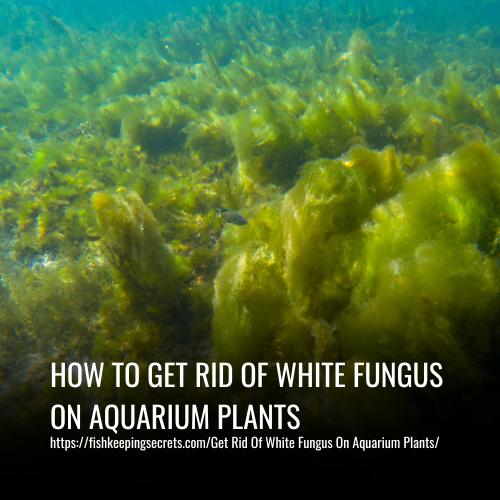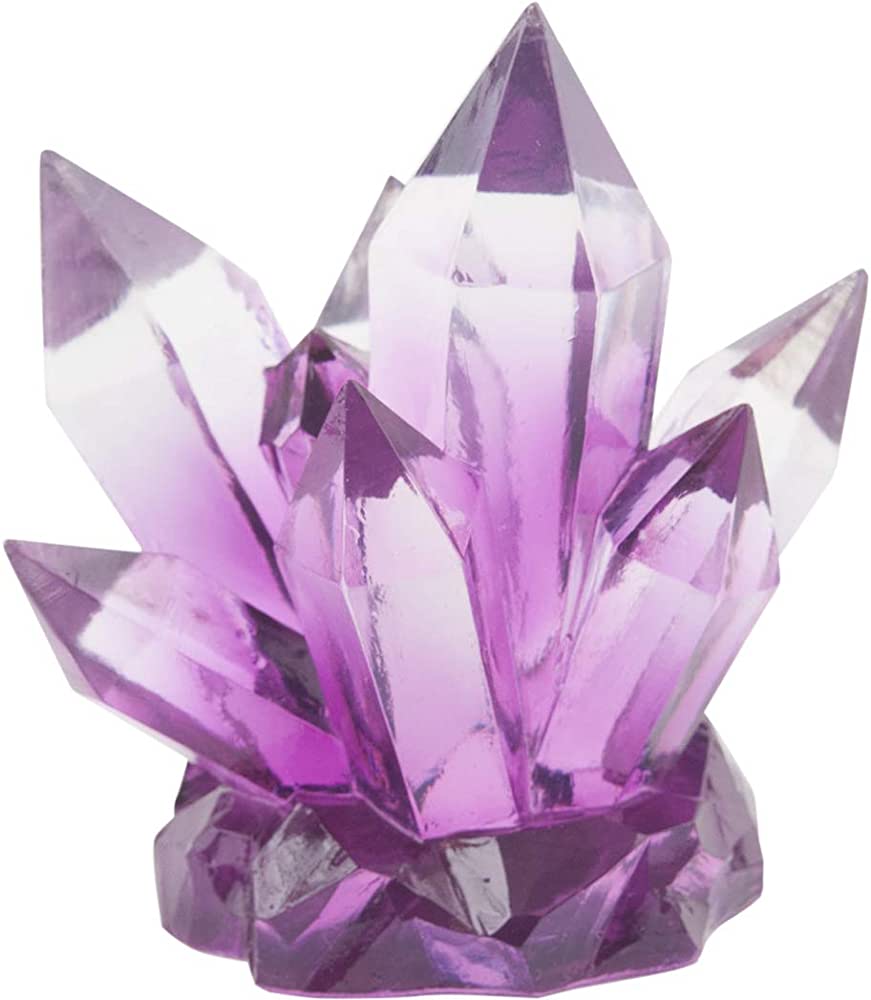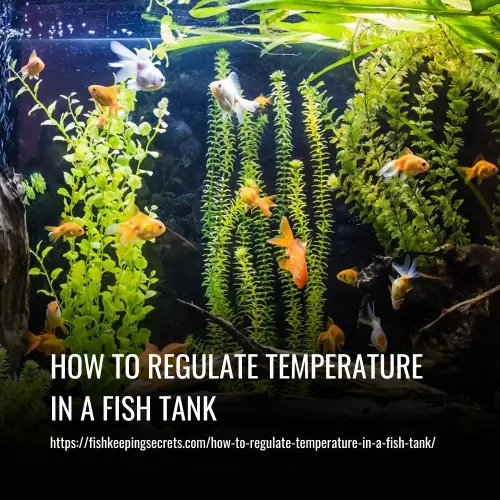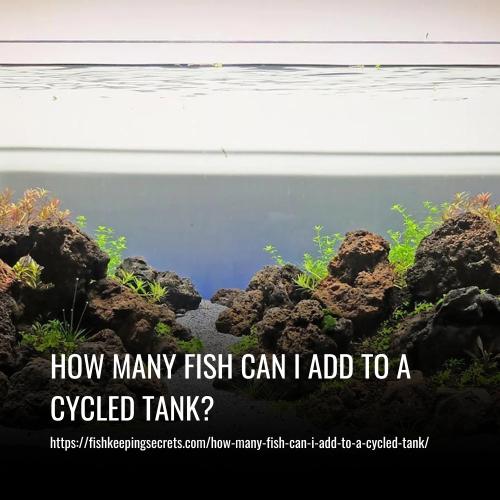Aquatic plants in your aquarium can be vulnerable to white fungus infections that can harm their health. If you notice any signs of white fungus on your plants, it’s important to take action quickly to save them.
Here are some steps you can take to get rid of the fungus and protect your aquatic plants:
- Physically Remove Fungus by Hand.
- Dip In Saltwater.
- Consider Fungus-Eating Animals.
- Hydrogen Peroxide.
- Bleach Dipping.
- Clean it with Potassium Permanganate.

1. Physically Remove Fungus by Hand:
One effective way to get rid of white fungus on your aquarium plants is to physically remove it by hand. Luckily, the white fungus doesn’t stick very well to surfaces, making it easy to wipe off. The affected plants can be cleaned by using a damp cloth to gently wipe the leaves and undersides, or by using your hand.
Prior to cleaning, it is recommended to extract the plant from the aquarium to prevent any detached fungus from dissolving and floating in the water. By physically removing the fungus by hand, you can effectively eliminate it from your aquarium plants and improve their overall health.
2. Dip In Saltwater:
A common problem that aquarium owners face is a white fungus growing on their plants. Luckily, one effective solution to clean them is to dip the plants in a saltwater solution. The solution can be made by combining 1 cup of aquarium salt with 1 gallon of clean water in a container.
To use this method, carefully dip your living plant in the saltwater mixture for about 15-30 seconds, making sure not to submerge the roots. Once you’re done, rinse off the plant with some fresh water. Following these steps can help you eradicate any white fungus on your aquarium plants and keep them healthy and pristine.
3. Consider Fungus-Eating Animals:
If you’re struggling with white fungus on your aquarium plants, there are a few simple solutions to get rid of it. One option is to consider introducing certain fish, snails, or shrimp that can help consume the fungus. Not only are these animals easily accessible and affordable, but they also offer an added benefit by keeping your aquarium clean while adding even more interest to your underwater world.
4. Hydrogen Peroxide:
When it comes to getting rid of white fungus on aquarium plants, a simple solution is to use hydrogen peroxide. To do this, start by mixing 5 ml of 3% hydrogen peroxide with one gallon of water in a clean container. Next, dip the affected plant into the solution for about 30 seconds, taking care not to allow the roots to touch the water.
After completion, the plant should be washed extensively with unpolluted water and any residual fungal matter on the leaves can be removed by gentle rubbing. Hydrogen peroxide can be an effective and easy-to-use solution for removing unwanted fungus from your aquarium plants.
5. Bleach Dipping:
Bleach dipping is a method that can effectively remove fungus from aquarium plants. The process involves dipping the plants in a water and bleach solution consisting of 5-10% bleach for around 2 minutes. However, it’s important to avoid including the roots of the plants during the dipping process.
Once the dip is complete, thoroughly rinse the plants before placing them back into your aquarium because bleach can be deadly to fish. By properly executing this method, you can effectively eliminate white fungus from your aquarium plants and maintain a healthy environment for your aquatic creatures.
6. Clean it with Potassium Permanganate:
One effective method to eliminate white fungus on aquarium plants is by using potassium permanganate, which has strong oxidizing properties and can act as a disinfectant. To do this, carefully place the affected plants in a solution of potassium permanganate and allow them to soak for approximately 10-15 minutes.
Take care while handling this chemical as it can irritate the skin and eyes. It is advised to rinse off the treated plants thoroughly with clean water afterward and then let them soak in fresh water for another 15 minutes, just to be sure that no residue is left behind. This process should kill most cells of the fungus, helping to eradicate the problem from your planted tank.
FAQs
The white fungus you’re seeing is likely a common occurrence in new aquarium setups known as “new tank syndrome.” It’s caused by an imbalance in the tank’s ecosystem, often due to excess nutrients or organic matter. This fungus typically appears as a result of the decomposition process of uneaten fish food, decaying plant matter, or other organic debris in the tank.
Generally, the white fungus itself is not harmful to fish. However, it can indicate poor water quality, which can be harmful to fish if left untreated. It’s essential to address the underlying causes of the fungus, such as excess nutrients or inadequate filtration, to ensure a healthy environment for your fish.
To remove the white fungus, perform regular water changes to improve water quality and remove excess nutrients. Additionally, ensure proper filtration and circulation in the tank to prevent organic matter from accumulating. You can also manually remove visible fungus and debris during water changes or with a gentle aquarium vacuum.
Adding fish to a new aquarium with white fungus may not necessarily resolve the issue and can even exacerbate it if the tank is not fully cycled. It’s crucial to establish a stable nitrogen cycle in the tank before adding fish, as this process helps break down waste and maintain water quality.
The duration of the white fungus in a new aquarium can vary depending on the underlying causes and how quickly they are addressed. With proper maintenance and water quality management, the fungus typically diminishes within a few weeks as the tank matures and stabilizes.
While there are chemical treatments available to address fungal issues in aquariums, they are not always necessary and can potentially harm fish and other aquatic life if used incorrectly. It’s generally recommended to focus on natural methods such as improving water quality through regular maintenance and establishing a healthy aquarium ecosystem. If chemical treatments are deemed necessary, carefully follow dosage instructions and consider temporary removal of fish during treatment.
Conclusion:
Dealing with white fungus on aquarium plants can be a frustrating and daunting task. However, with the right knowledge and proper measures, you can successfully eliminate this pesky issue and ensure a thriving aquatic environment for your plants and fish.
Remember to maintain proper water conditions, practice good hygiene, and consider utilizing natural remedies to keep your aquarium plants healthy and fungus-free. Say goodbye to white fungus and hello to a vibrant and beautiful aquarium!



